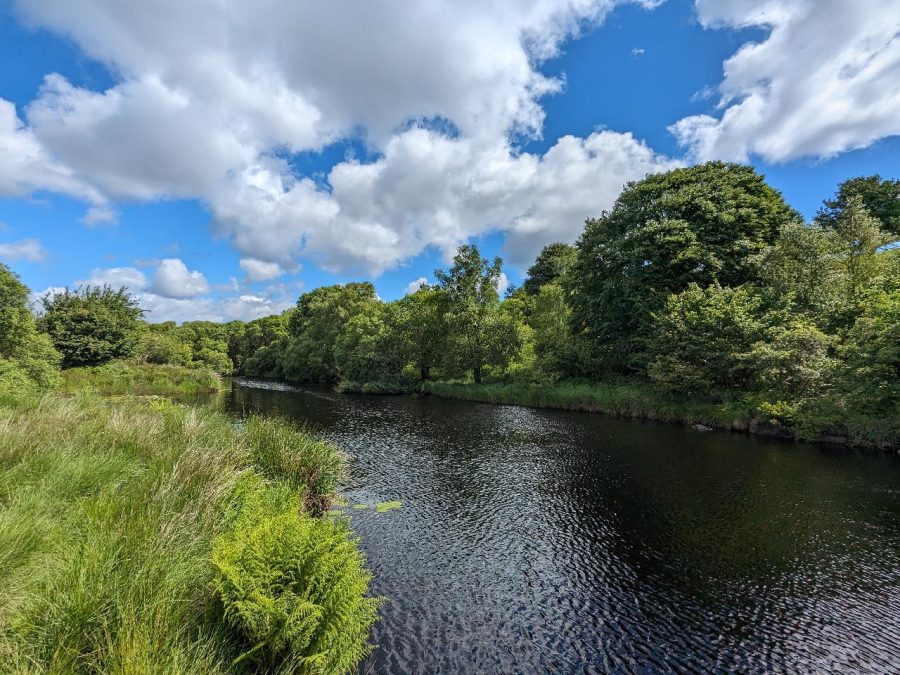A new report by environmental charity Earthwatch Europe has found that up to 89 per cent of water samples taken from UK rivers show poor ecological health.
During the weekend of 7-10 June, thousands of people across the UK measured their local water quality as part of the Great UK WaterBlitz, collecting over 1,300 datasets. The results paint a bleak picture: across the UK, 75 per cent of tests showed the rivers were in poor ecological health. In the Thames and Anglia regions, this rises to 89 per cent .
This report highlights significant regional variation in water quality. Hertfordshire and Cambridgeshire had the worst water quality with 89 per cent of data points showing unacceptable levels of nutrient pollution. Gwent and Northumberland had the least nutrient pollution, with both counties having 0 per cent unacceptable data sets.
Participants in the Great UK WaterBlitz, organised by environmental charity Earthwatch Europe, measured the levels of two polluting nutrients: nitrate and phosphate. Nitrates and phosphates are commonly present in domestic and industrial waste and sewage, as well as in the fertilisers that wash off farmland. High levels of nutrients cause excessive plant and algal growth, high levels of bacteria, and decreased oxygen levels in the water, killing plants and animals. The worse the nutrient pollution gets, the less able the river is to support aquatic life such as fish, insects and mammals like water voles.
Dr Sasha Woods, Director of Science and Policy at Earthwatch Europe said: “These results are truly disturbing – there are no parts of the UK unaffected by nutrient pollution. The picture around London and the Thames’ river basin is particularly dire. Our rivers have been historically stressed by farming, and we’re seeing this being made worse by inappropriate or limited sewage treatment. There is a pressing need for both improvements to wastewater treatment processes and reductions in agricultural pollution to reduce threats to vulnerable freshwater systems. The Government has committed to protect 30 per cent of land for nature by 2030 – that will be meaningless if the rivers and streams running through the land, the arteries of life, are diseased.”
Freshwater is essential for ecosystems and key to survival on our planet, but the new report clearly shows that the UK’s rivers are in poor health. The overall results from the Great UK WaterBlitz, the largest-ever water quality testing campaign in the UK, mirrors some of the outcomes from a recent report by the Office of Environmental Protection (OEP), which found that ‘most of England’s water bodies are in an unsatisfactory state’. The report showed that the Government is not on track to meet environmental objectives set under the Water Framework Directive, and highlights “Gaps in monitoring” as a key barrier to progress in meeting objectives.
Sasha continued, “This report would not have been possible without the support of people across the UK. The response to the Great UK WaterBlitz has been fantastic. As a nation, we clearly care deeply about the health of our rivers. This event has enabled people to better understand the health of their local rivers and catalysed grassroots action. We want to see more citizen-science testing and better use of this data by bodies such as the Environment Agency to help build a more positive future for our rivers. The next Government must commit to a national strategy for freshwater that includes all forms of pollution and is backed by a properly-resourced organisation that makes use of rich citizen science data.”
The Great UK WaterBlitz is part of Earthwatch’s FreshWater Watch programme. FreshWater Watch trains communities and individuals year-round to test rivers and freshwater habitats for nutrient pollution.








